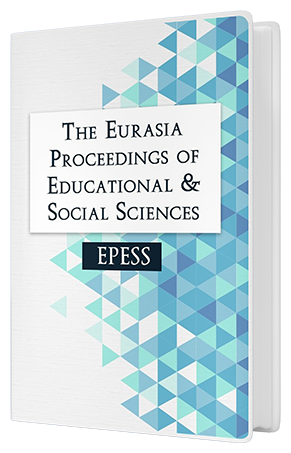Educational Games and Activities in Preschool Mathematics
Keywords:
Educational games, Educational activities, Mathematical education, Six-year-old, Kindergarten, Mathematical skillsAbstract
The core preschool curriculum currently binding in Poland sets forth the objective of pre-school education, the preventive and educational tasks of kindergartens, preschool departments in primary schools and other forms of preschool education, and the results of their implementation, i.e. the goals which children attain on completion of their preschool education. The objective of preschool education is to support the full development of children. This assistance comes in the form of care, upbringing and teaching & learning processes, which allow the child to discover its potential, get to know the logic of actions, and to gain experience on its road to truth, goodness and beauty. As a consequence, the child becomes mature enough to enter the first level of education. Preschool education defines educational contents as the elements of culture that are intentionally selected and included in the process of education. Cultural contents are the most crucial means of educational activity in preschools, as thanks to them the child absorbs the social achievements of many generations and may develop as a human being. Hence, in practice, preschool educational contents are classified, according to the domain of culture producing various type values, into: - mental education including speech and thinking development (Polish language education), introduction to the qualitative and quantitative relations and mathematical concept development (Mathematical education), discovering nature (Scientific education), - aesthetics education, - social and moral education, - health education. Mathematical education is one of the most difficult areas of education. Maths is often not only non-supportive in terms of child’s intellectual development, but in some children it can also impede or distort their personalities. As early as in preschool, children often experience failures, which may cause real drama. Consequently, many children are afraid of Maths and tend to avoid, by all means, any out-of-school situations associated with it. Research demonstrates that every fourth child at the end of the first grade/the beginning of the second grade experiences difficulties with Maths; whereas, every third child in the third grade cannot meet the requirements of the class. The main causes of the fear of and aversion to Maths are preschool failures. Thus, how to organise Mathematics so that they bring the desired results? It seems that to help the child reach the level of curricular requirements, often a simple introduction of other exercises, suited to the child’s abilities and difficulties it experiences, would suffice. The article presents analyses regarding the influence of educational games and activities on the level of mathematical skills of 5-year-olds within the Siedlce city area (Poland). Research included 380 six-year-olds and 40 teachers. The first study was conducted in November and the second – in April, after a five-month mathematical education with the use of educational games and activities.Downloads
Published
Issue
Section
License
Copyright (c) 2018 The Eurasia Proceedings of Educational and Social Sciences

This work is licensed under a Creative Commons Attribution-NonCommercial-ShareAlike 4.0 International License.
The articles may be used for research, teaching, and private study purposes. Any substantial or systematic reproduction, redistribution, reselling, loan, sub-licensing, systematic supply, or distribution in any form to anyone is expressly forbidden. Authors alone are responsible for the contents of their articles. The journal owns the copyright of the articles. The publisher shall not be liable for any loss, actions, claims, proceedings, demand, or costs or damages whatsoever or howsoever caused arising directly or indirectly in connection with or arising out of the use of the research material. All authors are requested to disclose any actual or potential conflict of interest including any financial, personal or other relationships with other people or organizations regarding the submitted work.




